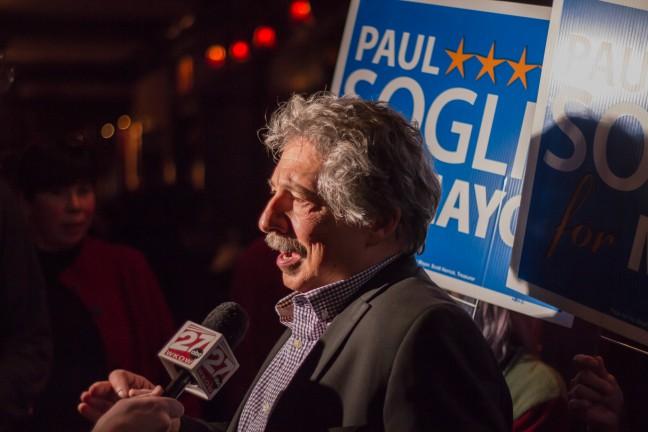Madison mayoral candidates Paul Soglin and Scott Resnick clashed over affordable housing, rising homeless rates and racial disparities in a debate Wednesday evening.
At the debate, hosted by the Democratic Party of Dane County, the two candidates offered differing views on how to address the amount of people in Madison who pay at least a third of their total income to housing costs.
Soglin said he defines affordable housing as creating housing for people with incomes from zero to $40,500. He said the city of Madison has to focus on the future and find a plan to cover the homeless, as well as working class families.
By building 5,000 more units of housing in Madison, the city can double its vacancy rate, which should eventually be lowered to five percent, Soglin said.
“Before I came into office, people were not collaborating to create new housing,” Soglin said.
Resnick disagreed and said there is no way for the city to currently pay for this plan long term.
A plan to build new housing will only work if there is an effective way to cover the costs, Resnick said. The city is building too many properties at the highest end and should expand equity development throughout the entire community, he said.
Resnick pushed for the creation of a new emergency day center for the homeless, which would provide therapy, housing resources and substance abuse assistance for people who need it. He stressed the importance of working collaboratively with neighboring Dane County partners.
“Even though there are homeless people in our community from Dane County, the hard truth is many individuals originated from Madison,” Resnick said.
Soglin instead argued the first problem Madison should address is its discharge policy. He said no individual should be discharged from jail or a substance abuse center unless housing accommodations have been made.
When asked about arrests and racial disparities present in the city, Soglin had numerous ideas on what is causing this particular problem.
He pointed out the different experiences the white children have compared with black and Latino children. Due to their parents’ resources, white teenagers often get put into divergent programs to help them escape the judicial system, as well as lower their chances of being repeat offenders. Others do not have access to the same resources, he said.
“The key to solving this problem is breaking a pattern that has existed in Madison and throughout the entire United States for many years,” he said.
Resnick said the city should focus on having honest communication between parties in order to make progress. He said the way to stop racial disparities is by working alongside the community to close the barriers that are present.













